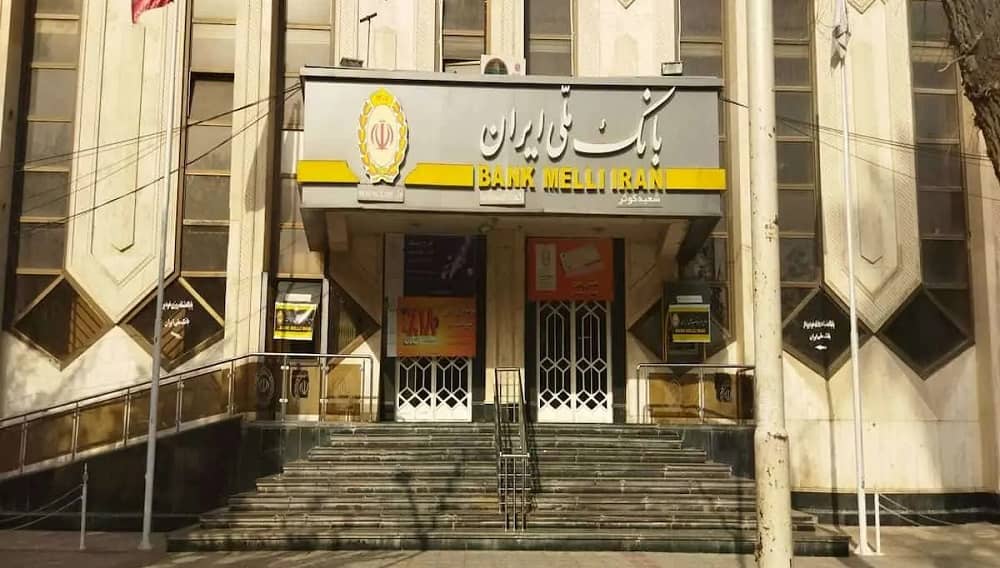

The document, addressed to the Bank-e-Melli of Iran, highlights the revocation of the Central Bank of Iran’s license to operate in Iraq. This action is attributed to operational losses, limited activities, and the impracticality of expansion, further exacerbated by the bank’s entanglement with international sanctions.
This development signifies a major blow to the Iranian regime’s attempts to skirt international sanctions and sustain its militias financially. The effectiveness of these measures, however, is seen as limited, with indications that the United States is beginning to recognize the full extent of a threat it previously underestimated.
Brian Nelson, the U.S. Deputy Treasury Secretary for Terrorism and Financial Intelligence, visited Iraq on January 28 to discuss the circumvention of U.S. sanctions. This visit followed American authorities raising alarms about Iraq’s unintentional role in facilitating dollar smuggling to Tehran. In a subsequent effort to tighten financial controls, Reuters reported on February 4 that Iraq banned eight local commercial banks from transactions in U.S. dollars, aiming to combat fraud, money laundering, and other illicit financial activities.
#Quds Force’s Arm in #Iraq: Holy Shrines’ Reconstruction Headquarters https://t.co/qlOEz4A3PH#BlackListIRGC #BlackListMOIS #IRGCTerrorists #IRGCOutOfIraq
— NCRI-FAC (@iran_policy) October 16, 2019
In defiance, the Iranian regime has attempted to downplay the impact of these financial restrictions. Mohsen Chamanara, from the Iran-Iraq Joint Chamber of Commerce, minimized the significance of the National Bank’s license revocation, asserting that trade between the two countries remains unaffected. However, the swift visit of Iran’s Supreme National Security Council Secretary to Iraq, following a missile strike by the Islamic Revolutionary Guard Corps (IRGC), has raised eyebrows about Iraq’s alignment with the United States, prompting Baghdad to seek intervention from the United Nations Security Council.
The discussions during this visit, as reported by Iranian state media, focused on security issues, including the completion of a security agreement between Baghdad and Tehran concerning the extradition of Kurdish opposition group members.
This series of events underscores the Iranian regime’s continued aggression and bellicosity in the region, a situation exacerbated by delayed international responses. Despite efforts to limit Iran’s access to U.S. dollars through Iraq, mixed signals from Washington, including sanction waivers for Baghdad to purchase electricity from Iran, have inadvertently facilitated the regime’s terrorism financing.
The Iranian Regime’s IRGC Quds Force: 1980s- Present
A comprehensive report about #Iran regimes terrorist Quds force#terrorism #NoImpunity4Mullahshttps://t.co/e8C54zTHFL pic.twitter.com/XHw3UCCB0t— NCRI-FAC (@iran_policy) October 25, 2020
The National Council of Resistance of Iran (NCRI) has long warned about the regime’s infiltration into Iraq and its sanction evasion tactics. In 2007, the NCRI disclosed extensive details about the IRGC network in Iraq, including names and operations of clerical regime agents and the Quds Force’s activities in the region.
The international community faces a critical challenge in addressing the financing of terrorism by the Iranian regime. A firm and unwavering policy is essential, one that recognizes and addresses Tehran’s destructive activities without offering undue concessions.

MEK Iran (follow us on Twitter and Facebook), Maryam Rajavi’s on her site, Twitter & Facebook, NCRI (Twitter & Facebook), and People’s Mojahedin Organization of Iran – MEK IRAN – YouTu







